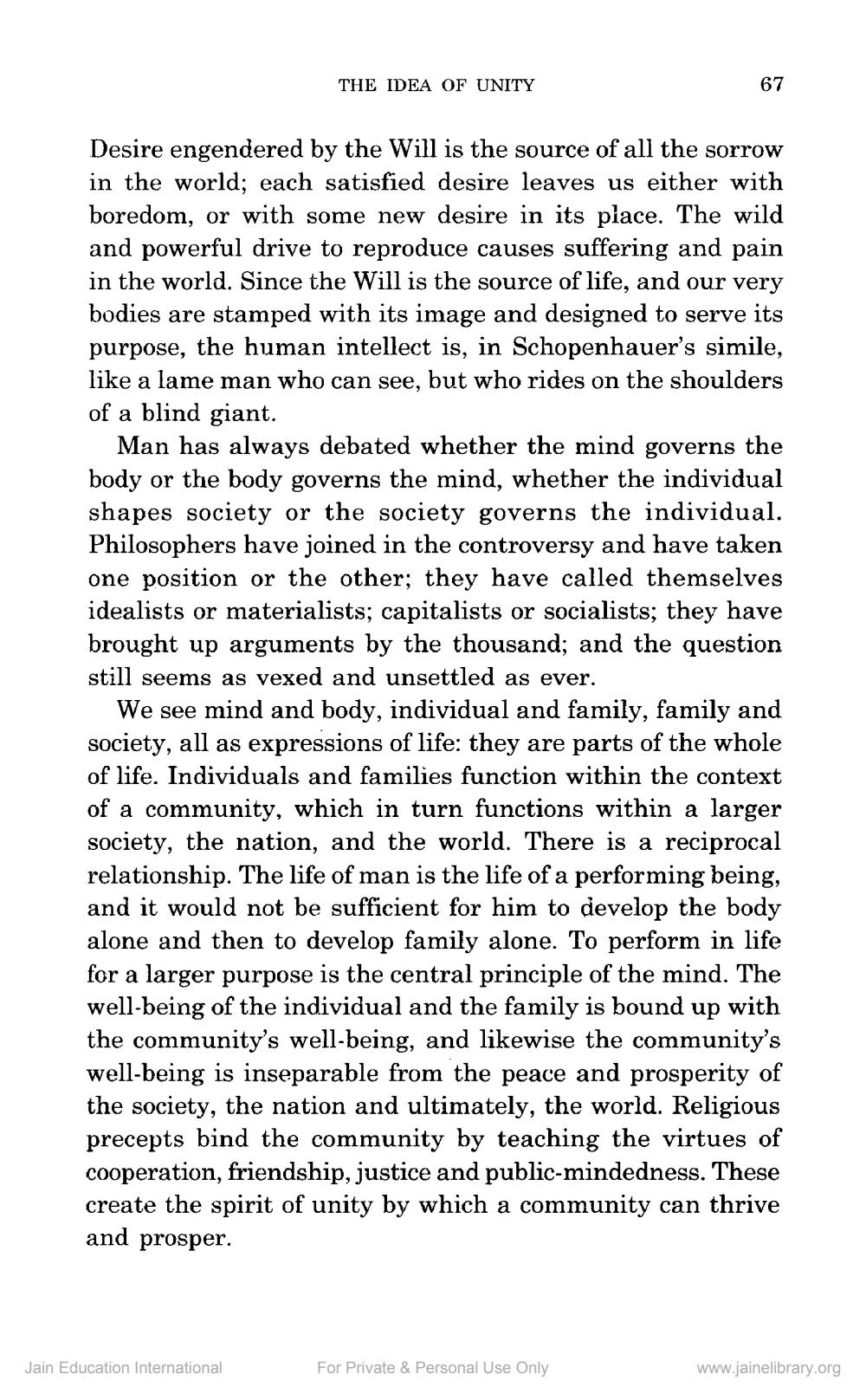________________
THE IDEA OF UNITY
67
Desire engendered by the Will is the source of all the sorrow in the world; each satisfied desire leaves us either with boredom, or with some new desire in its place. The wild and powerful drive to reproduce causes suffering and pain in the world. Since the Will is the source of life, and our very bodies are stamped with its image and designed to serve its purpose, the human intellect is, in Schopenhauer's simile, like a lame man who can see, but who rides on the shoulders of a blind giant.
Man has always debated whether the mind governs the body or the body governs the mind, whether the individual shapes society or the society governs the individual. Philosophers have joined in the controversy and have taken one position or the other; they have called themselves idealists or materialists; capitalists or socialists; they have brought up arguments by the thousand; and the question still seems as vexed and unsettled as ever.
We see mind and body, individual and family, family and society, all as expressions of life: they are parts of the whole of life. Individuals and families function within the context of a community, which in turn functions within a larger society, the nation, and the world. There is a reciprocal relationship. The life of man is the life of a performing being, and it would not be sufficient for him to develop the body alone and then to develop family alone. To perform in life for a larger purpose is the central principle of the mind. The well-being of the individual and the family is bound up with the community's well-being, and likewise the community's well-being is inseparable from the peace and prosperity of the society, the nation and ultimately, the world. Religious precepts bind the community by teaching the virtues of cooperation, friendship, justice and public-mindedness. These create the spirit of unity by which a community can thrive and prosper.
Jain Education International
For Private & Personal Use Only
www.jainelibrary.org




